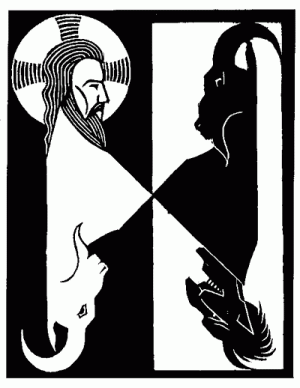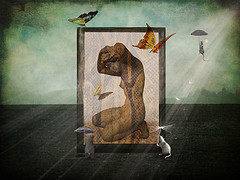Father’s Day – and Fathers’ Day
Happy Father’s Day!
Empathies and condolences to those whose dads have died or disappeared, and to those have, or had, or are, or must deal with “difficult” fathers.
If Father’s Day brings you pain, this post is for you. If it’s Father’s Day, and there’s no father, or it’s Father’s Day, but there just isn’t a card you could possibly give your father, or it’s Father’s Day, but you’re struggling to play double as a single mom, or it’s Father’s Day but… whatever emotional dynamics make this day non-celebratory for you, there are other things you can do!
For fathers as for mothers, as for humans – all of can use a very ancient method to find a path to celebration.
Try letting go of the literal. CELEBRATE the fatherly qualities that you love as they are expressed through the people you know. There are great dads and great men all around you. There are! If you don’t see any, you need to get out more!
Focus on the qualities that you really, truly, most authentically admire and find worthy when you see them. These are habits and attitudes and actions and values and all sorts of other things that you would sincerely wish to see in play more often (in your world and in the worlds of others).
Imitate those things! Start doing those things or appreciating these things when you see them! Enjoy them! Mimic them! Repeat them! Celebrate them!
This method survives in the religious paths that aim to follow/imitate the person or journey of the Christ, and even in its watered-down version, the WWJD (What Would Jesus Do?) camp. But perhaps religion is part of why you’re not enjoying Father’s Day? Or perhaps the text-based, variously-interpreted Jesus doesn’t actually seem all that great either sometimes, especially through the lens of some of the uses to which it’s been put?
Some people think that you have to project a father into the sky, but that’s only a metaphor for the divinity – one among others, even in the most patriarchic traditions. It’s a way for us to connect with the idea of God by imagining that our own idea of a father is made perfect and loving and all-knowing, to compensate, to make us feel protected and loved. It’s a great idea, and a great feeling, but the divine can also be imagined as a mother, an animal, an idea. The divine isn’t limited. Only our imagination is limited. While I love to imagine the most wonderful of fathers is watching over me and guiding me and loving me, I don’t tend to get very literal about it and then turn around and worship him. Why? Because when I do that, I also can’t help but remember some of the less wonderful stuff, the father of pride and violence and manipulations, the father of unreasonable and conflicting demands – and commands, the father that can sometimes lack kindness or fairness. And these things then get tied up into the divine as well – as we see from our mythologies, and from our social histories.
What’s beautiful here to me is that whether you view this as a spiritual method or a practical method doesn’t really matter. If we all have a spark of the divine – then it’s already within us, and we will be attuned – if we pay attention. And if we don’t have a spark of the divine, we still have a character that continues to develop via questionings and habits and experiences, and we will notice things – if we pay attention.
No-one else is you! You will not admire everything about anyone, nor should you!
Instead, find the something here, and there…
People talk about role models, but I don’t think it’s productive or realistic to imitate or “worship” a person in their entirety – that’s just idolatry or something like that. I’m also not talking about any sort of colonial or predatory form of assimilation like a slash-and-burn cyborg here, and it doesn’t work when it’s in the mode of “should-ing” all over yourself because you feel that you don’t “measure up” in some way either.
It’s much more modest than that.
Just start to incorporate (incarnate?) what you really can’t help but see as a better thing, a sweet thing, a loving thing, a beautiful thing, a true thing, and helpful thing, a wise thing.
The trick here is to really learn to notice and to feel when you just truly admire or enjoy something – however small or fleeting it might be – about another person. You can’t really plan it, or calculate how it’s going to happen, but when you pay attention, you’ll start seeing. And when you start seeing, after a while you can’t believe that you didn’t see those things before.
Learn how to sense what’s real to you, and to follow your own heart and soul, by paying attention, through recognition, and by creative reconstruction, alignment, and re-alliance.
It’s too easy to stay in the realm of ideas on this, through some vision or articulation of a universal ideal. Instead, try really to focus in and allow the force of the galvanic singularities to affect you. Notice aspects and facets of the real people in your life, their ways of being and their actions, and their stories, and the little things that make them who they are. Of these, try picking up just one detail, the very best thing you know and love about that person, the thing you’d mention at their funeral if you had to speak about who they really were.
When you invite these little gems to activate within you, guess what happens? The very thing that you mimic, and re-present, and try to assimilate – transforms! It becomes a unique thing to you, because it can never repeat in exactly the same way when it’s filtered through the YOUness. Maybe there is no “real thing” but instead a chain of variations – sameness within difference, difference within sameness. I don’t know. I wish I did.
But this I can say with some confidence: However loosely bundled your heaps of self might be, it’s always great to pull in stuff that you know (that you intuit, that you feel, that you sense) is just better, truer, and/or more beautiful! Need some inspiration for starters? Try Atticus Finch!
On Father’s Day, I hope that YOU celebrate all those wonderful fatherly sparkles that are blooming here and there, through everyone, all over.
Happy Father’s Day, you dear, wonderful fathers!
Happy Father’s Day, you who father others in spirit!
Happy Father’s Day, you who inspire better ways to be a father!
Happy Father’s Day, you children who invoke love in the hearts of fathers!
Happy Father’s Day, you mothers loving fathers!
Happy Father’s Day, you who are fathers to the next generation, and the next!
Happy Father’s Day – everyone!

 The sin bucket is never full because it
The sin bucket is never full because it 

